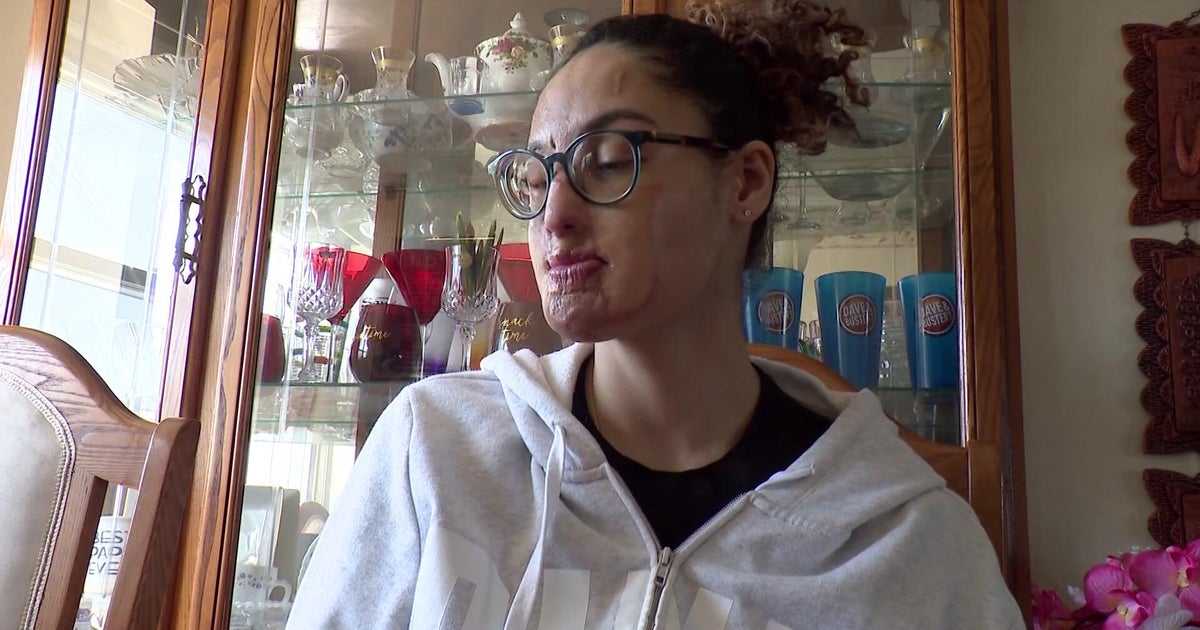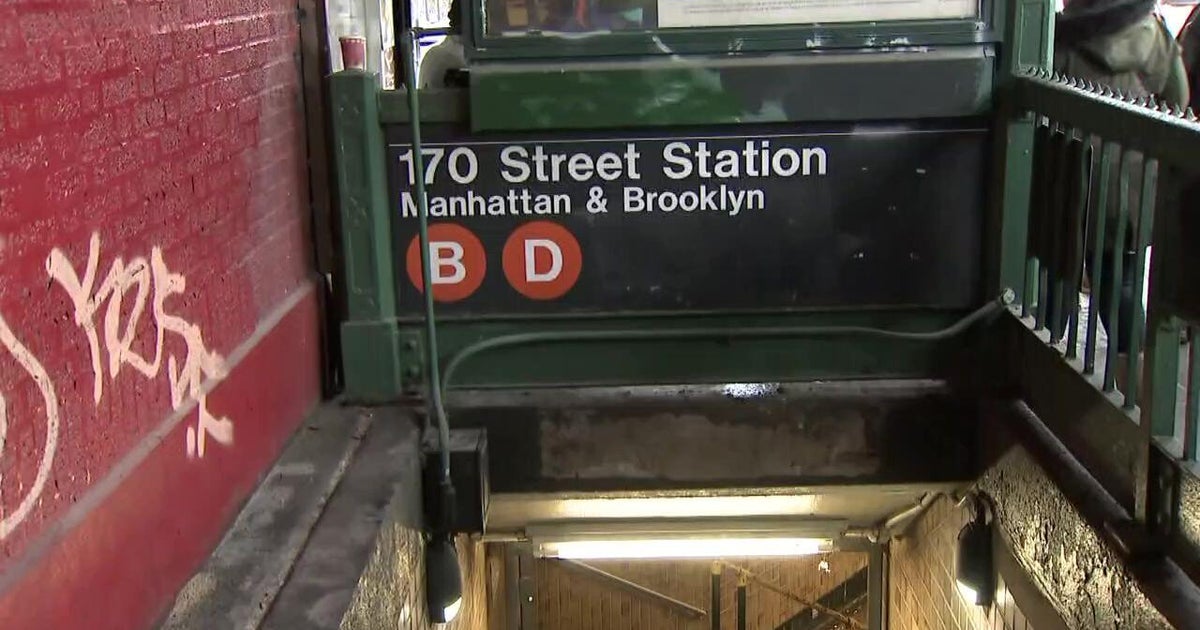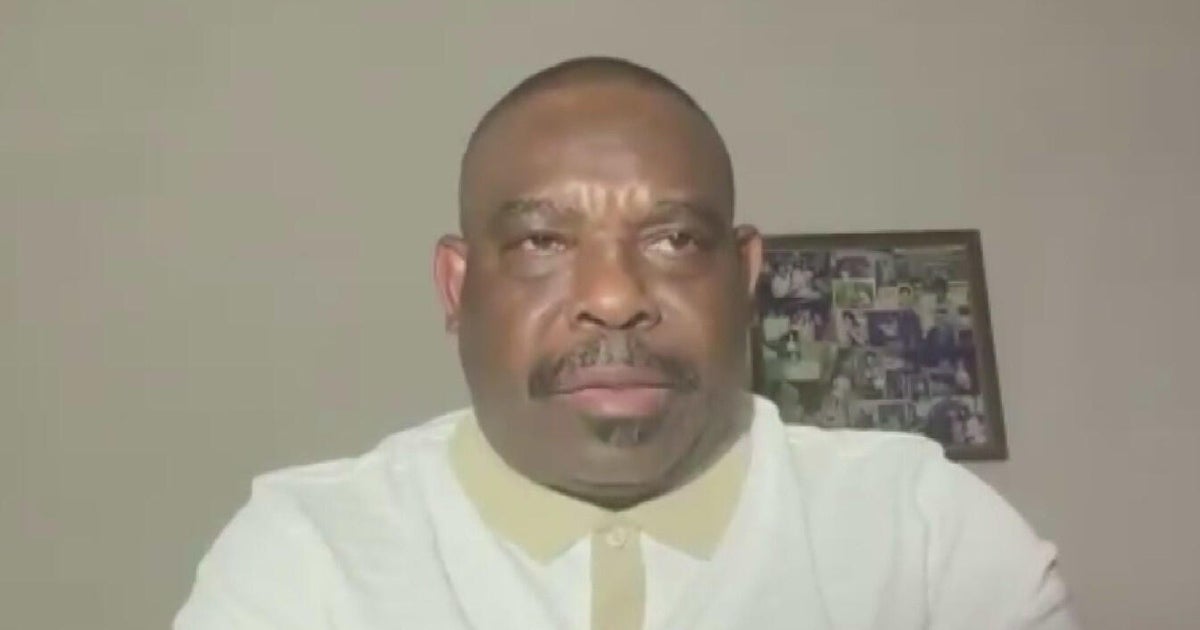Clinton, Sanders Spar Over Economy, Trade, Guns In Troubled Flint, Michigan
FLINT, Mich. (CBSNewYork/AP) -- The economy and the water crisis in Flint, Michigan took center stage Sunday evening when Hillary Clinton and Bernie Sanders held another debate.
Flint was already in tough shape decades before residents learned their drinking water was tainted with lead. But panic and anger have taken hold when a water source switch resulted in mass lead contamination for residents.
For 18 months, the corrosive water from the Flint River seeped lead into the drinking water supply, and it is now blamed for elevated lead levels in some children's bloodstreams. Investigators revealed state officials knew about the problem and failed to do anything about, CBS News' Weijia Jiang reported.
In their opening statements, both Clinton and Sanders decried the state of affairs in Flint, and said Michigan Gov. Rick Snyder must go.
"What I heard and what I saw literally shattered me and it was beyond belief that children in Flint, Michigan in the United States of America in the year 2016 are being poisoned," Sanders said. "That is clearly not what this country should be about."
Sanders accused Michigan Gov. Rick Snyder of "dereliction of duty" and said he should resign.
Clinton pointed out that she requested Flint as the site of the debate "so we can continue to shine a bright spotlight at what is happening in the city." She also said Snyder should resign or be recalled, saying the state government had failed to come up with the money to fix the problem.
"It is raining lead in Flint, and the state is derelict in not coming forward with the money that is required," she said.
Sanders said further that he would "fire anybody who knew what was happening" and did nothing.
Clinton and Sanders were asked how they would keep manufacturing jobs in the U.S. rather than having them outsourced. Clinton said she would "claw back" tax benefits for companies to move their factories out of the country and make them pay an "exit fee."
Sanders took Clinton to task for the remark, telling moderator Anderson Cooper, "I am very glad, Anderson, that the Secretary has discovered religion on this issue."
He said Sanders "supported virtually every one of those disastrous trade agreements written by corporate America."
Clinton fired back, saying Sanders had failed to vote for the bailout of the auto industry that could have cost many jobs.
"If everybody had voted the way he did, I believe the auto industry would have collapsed," and taken millions of jobs with it, Clinton said.
But Sanders set his targets on Wall Street, saying it did not deserve a bailout in 2008.
"I will be damned if it was the working people in this country who have to bail out the crooks on Wall Street," he said.
Later in the debate, the father of Abigail Kopf, a 14-year-old girl who was wounded in a series of random shootings in Kalamazoo recently, asked what the candidates would do to stop mass shootings. He said he did not want to hear the candidates say addressing mental health was the answer, given that the shooter showed no evidence of mental illness.
Clinton immediately said stronger gun control was a must, calling for comprehensive background checks, closing loopholes, and placing restrictions on gunmakers.
"We've got to have a public discussion, because we have created a culture in which people grab for guns all the time."
While Clinton took Sanders to task for voting against some restrictions on guns, Sanders said he favored closing loopholes and tougher restrictions.
"The bottom line is people who should not have guns in America should not be able to buy guns in America," Sanders said.
But Sanders did say he was against the principle of suing gunmakers as redress for mass shootings, saying such an action was tantamount to an attempt to end gun manufacturing in America.
Clinton as also asked by moderator Don Lemon about her support for the 1994 Crime Bill. He noted that the bill is widely perceived to have resulted in mass-incarceration – particularly among African-Americans – and asked why black voters should trust her this time around.
Clinton said both she and Sanders had been supporters of the bill, which was passed under her husband, President Bill Clinton. She said the bill came at a time when concern about crime was extreme, but it backfired in that it vastly expanded the reasons for which people might be imprisoned.
"Too many families were broken up, too many communities were adversely affected," Clinton said.
Sanders noted that he voted for the bill because it also included the federal ban on assault weapons and the Violence Against Women Act, and claimed that if he had voted against it, Clinton would accuse him of violating against those two acts.
An audience member later asked Clinton and Sanders whether they supported hydraulic fracturing, or fracking, for natural gas. Clinton stopped short of saying she did not – saying she was against fracking "when any locality or state is against it," when methane is released or water is contaminated, and unless anyone who fracks can tell the government exactly what chemicals it is using.
"By the time we get through all of my conditions, I do not believe there are many places in America where fracking will be an acceptable practice," Clinton said.
Sanders, by contrast, gave no conditions under which he would tolerate fracking.
"My answer is a lot shorter – no, I do not support fracking," Sanders said.
The candidates also both called for reforms to tear down systemic racism, in particular violence by police that has affected communities of color.
The Democratic candidates faced off just two days before Michigan's presidential primary.
Earlier in the day, Clinton visited a handful of predominantly black churches in Detroit asking for votes in the Michigan primary. African-American voters have helped Clinton grab a big lead in delegates.
The latest polls give Clinton a sizable advantage in Michigan.
(TM and © Copyright 2016 CBS Radio Inc. and its relevant subsidiaries. CBS RADIO and EYE Logo TM and Copyright 2016 CBS Broadcasting Inc. Used under license. All Rights Reserved. This material may not be published, broadcast, rewritten, or redistributed. The Associated Press contributed to this report.)







